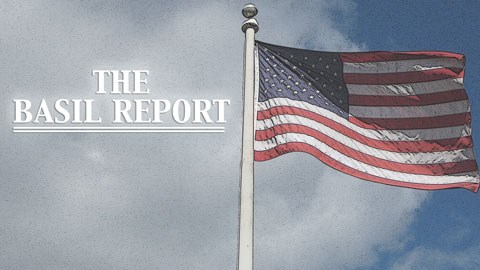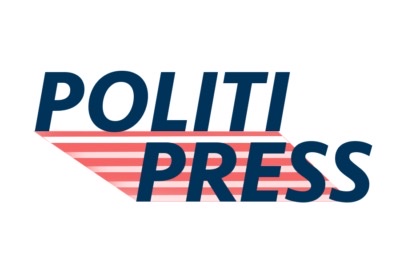When Barack Obama was sworn into office on January 20, he inherited two wars from his predecessor. When, only a month later, the President ordered a complete revamping of the American strategy there, he took ownership of one of the two. Afghanistan is now Mr. Obama’s war.
There is a crisis in Afghanistan. Actually, as is well known, there are multiple crises. However, the most serious one facing Obama is a crisis of purpose. The President has yet to define exactly what we are fighting for in Afghanistan. To get Bin Laden? To prevent the government there from falling? To destroy the Taliban? To deny Al-Qaeda a staging ground? This is a serious problem; without an objective in mind, it is impossible to determine how we should move forward in Afghanistan.
Rather than a nation-building intention, I propose a counterterrorism objective. While it would be in the national interest to set up a full-fledged democracy in Kabul, it would not be worth the cost. The obstacles to creating a Jeffersonian democracy there are simply too great: pervasive corruption, the opium trade, and the difficulty of legitimatizing the Afghan government, among other things. Furthermore, the United States only has a limited amount of financial and military resources that can be spent pursuing such a goal. Even in the best-case scenario, such an approach would absorb all of the President’s political capital. The Democratic base would be weakened, Republicans would have a rallying point, and new Obama administration proposals would face tough resistance.
On the other hand, a counterterrorist mission would have significant benefits. Under this strategy, the emphasis would be on preventing Afghanistan from becoming an extremist sanctuary and targeting Al-Qaeda rather than “the Taliban.”
To accomplish these two goals, we would employ a four-pronged approach. Firstly, there would be no additional troop surge. At the same time, however, there would be no troop reduction. For this strategy to be successful, further troops are not required and would only be unnecessarily costly. Reducing troops would also be a mistake, for it would give insurgent forces a psychological victory. By holding our troop levels in Afghanistan steady we would show that our commitment is permanent and that we are not leaving any time soon. This is what occurred in Iraq in 2007 when President Bush announced a troop surge there.
Second, the 60,000-odd US troops that are in Afghanistan should be moved from the countryside to the major population centers. Some of the bloodiest battles of the war have been fought in the sparsely populated areas of Afghanistan, and there is little to show for it. We must face the facts: the most remote parts of Afghanistan are not going to be brought under government control any time soon. Furthermore, our troops could be better used securing major cities.
Third, the use of Predator drone strikes must be maintained. These unmanned aircraft have been very successful at eliminating high value targets along the Afghanistan-Pakistan border, including members of the upper echelon of Al-Qaeda.
Fourth, and most importantly, US/NATO and Afghan negotiators must begin talks with “the Taliban.” Because there is no way we can defeat this indigenous group militarily, the only solution to problem is a political settlement. We must negotiate with “the Taliban.”
Why the quotes? What is often referred to as “the Taliban” today is not the same Taliban that was driven from power in 2001. The Taliban of 2001 was a homogeneous, ideological Islamist theocracy. The “Taliban” of today is anything but monolithic. Somewhere from 70% (General David Petraeus’s estimate) to 90% (independent analysts’ estimates) of what is referred to as “the Taliban” are actually tribal fighters with their own agendas. Some are Pashtun nationalists. Most are in it for the money.
Most importantly, all of these tribal fighters could be pealed away from the insurgency. Gen. Petraeus did this very successfully with Sunni groups in Iraq. If, like in Anbar Province in Iraq, the military could convince disillusioned Talibs that they would make more money and would help their country by joining local militias, we would likely see a reduction in violence similar to the level seen in Iraq in late 2007.
The President’s decision on this issue will likely be his most historically consequential so far. Historians will look back on it favorably if he decides to narrow the mission to counterterrorism and goes about accomplishing it through a political settlement with the Taliban.































Basil • Oct 10, 2009 at 12:32 PM
Anon (and Melissa a little too), the point you seem to be making is that Afghanistan will cost Obama too much political support to be worth the effort? While this may be partially true, I believe a “toned-down” commitment would not cost him an extraordinary amount of support; half of the country supports a continued presence there. Furthermore, a slightly hawkish strategy in Afghanistan would help the President win support from the crucially important conservative-leaning independents.
Melissa, your main argument (besides the waste of political capital part) is that the Afghans don’t support our efforts? That’s not true. According to the most recent polls, half of Afghanistan still supports coalition forces. The number was above as 80% in 2005. A full 60% of the country also believes that a Taliban resurgence is the biggest threat to their welfare. The Taliban were not loved when they were in power. They were brutal and completely repressive. The vast majority of the country has very little support for them.
http://abcnews.go.com/PollingUnit/fullpage?id=6797795
In other words, Afghans *want* us to succeed.
Tara • Oct 19, 2009 at 7:44 AM
Basil,
To say I am impressed with your writing is an understatement. It shows that at least with THIS high school publication, you are interested in an intelligent and an engaging debate of the issues .What an amazing venue you have to educate students, who may receive their information through a filtered, politically correct lens. Our kids deserve to be educated in an environment that is not so skewed politically, with opposing viewpoints represented, and an environment that is conducive for engaging healthy, thoughtful and respectful debate.Hats off to you Basil, you have opened the door.
Melissa • Oct 9, 2009 at 9:43 PM
Your optimism is fantastic and your logic sound. Unfortunately, Afghanistan is not known for logic. I’m not referring to its people but its history. I also am not certain whether the President’s “capital” spent here is worthwhile. I refer you to the 1980s and the Soviet’s absolute failure in Afghanistan despite spending tons of money and having much more access to the region. “They” don’t want to be like “us” and “they” don’t want “us” there. What do we do? How do we make “them” realize that “we” are not the great evil they see from afar? I would like you or the President to give us direction (or at least hope) in that regard.
Anon • Oct 9, 2009 at 12:28 PM
A well written article but I have one major disagreement. The US should not continue to fight in Afghanistan. Casualties continue to grow with little to no benefit for America or the world.
Afghanistan has become President Obama’s war and much like Vietnam, it will go down in history as a quagmire.
Afghanistan will cost Obama his political support and reelection. If he wants to cede the presidency in 2012 then stay the course and continue the loss of American servicemen without purpose.
It’s interesting that our President was just awarded the Nobel Peace Prize yet his actions in Afghanistan have been anything but Peace.
Tara • Oct 19, 2009 at 7:25 AM
Doing what is the right thing is often not the popular thing. To be swayed by the popular opinion of the day, in hopes to appease supporters and ensure reelection in 2012 , is immoral and deplorable. Perhaps Obama will put aside his Chicago style politics, that have served him so well to date,enuring his election, and rise to the occasion, and finally, maybe, hopefully become a Commander in Chief. Decisions regarding war , Guantanomo, the rights of terrorists are never easy, whereas promises for free health care and giveways, rob from the rich and give to the poor and downtrodden, well dang, Hallelujah, our Savior is Here !!